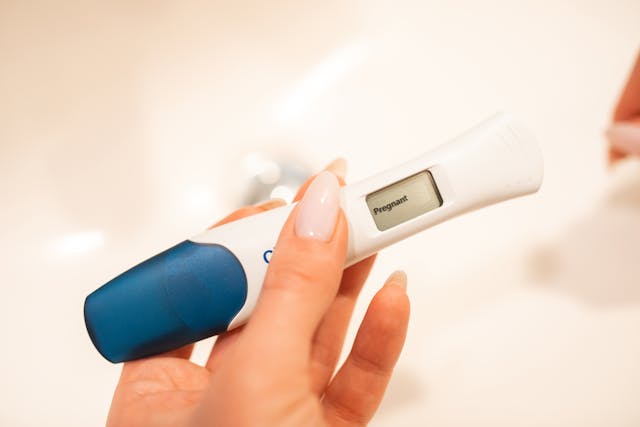Deciding whether or not to circumcise your baby boy is a decision that will impact your son for the rest of his life. While it’s an extremely personal choice, it’s important that you have all the facts at your finger tips before you make it. Circumcision cannot be undone, so please do not take this decision lightly.
Here are 6 facts about circumcision that could impact your decision:
1. Medical circumcision is not the same as traditional circumcision
It’s important to understand that medical circumcision done by a doctor and traditional circumcision are two entirely different things. Traditional circumcision, such as performed by Jews for religious reasons, removes only the tip of the foreskin, leaving the majority of the foreskin and it’s function intact. Medical circumcision removes the foreskin and it’s protection entirely, a much riskier and more invasive procedure.
2. It’s not recommended by the AAP
Some studies show that there are certain benefits to circumcision, while others suggest that the benefits are few. In weighing the risks and possible benefits of circumcision, the American Academy of Pediatrics (AAP) does NOT recommend routine infant circumcision.
3. Circumcision is not “cleaner”
It’s a myth that uncircumcised males are somehow dirtier or have more trouble with cleanliness than circumcised males. As with any child, an uncircumcised boy will need instruction on basic hygiene practices as he grows.
4. Circumcision is not “popular”
Forget your worries about how your son will look in the locker room. Circumcision is less common than you think, and rates are dropping, down to just 32.5% of US males being circumcised in 2009. Circumcision rates are higher in some parts of the country, but it’s far from the most “popular” choice.
5. Circumcision is painful
The foreskin is lifted and cut off with the use of surgical tools. Your baby will be awake during this procedure. Doctors often use a topical anesthetic to numb the pain, but it is far from complete relief. You can find videos online showing the stress and pain that an infant endures while being circumcised; they are not for the weary.
6. Circumcision has risks
Circumcision, as with any surgical procedure, carries risks. Some of them are minor, and others, while rare, are serious.
The most common risks associated with circumcision include:
- Risk of bleeding and infection
- Irritation of the glands
- Inflammation
- Risk of injury
More serious risks include:
- Serious bleeding
- Life threatening infection
- Scarring
- Damage to the urethra
- Amputation (very rare)
Parents do not always agree on the circumcision decision. Take the time to research your choices in depth, and ask that your spouse do the same. Going over the information together and with your doctor or pediatrician can help to get you and your spouse on the same page, or at least going in the right direction through discussion.
creative commons photo by BIG D2112
Sources:
Web MD: Circumcision Risks
NY Times: Steep Drop in Circumcisions in US
Medline Plus: Circumcision
Web MD: Circumcision




Thanks for the informative post! One thing that I’d like to add is that ritual circumcision isn’t necessarily less extensive–not that a less extensive circumcision is any more justifiable. Jewish circumcisions, for example, are often done using similar clamps and techniques used in medicalized settings. Also, a vast majority of circumcisions in the world are done as a compulsory rite of passage for teenage boys under a variety of circumstances. I’m afraid that the conditions under which boys are circumcised in much of Africa, Asia, and Australasia are no less traumatic.
Thank you so much for your reply. I agree with you. Mainly what I meant by traditional circumcision is traditional Jewish circumcision that was done with only a sharp object. Today, many Jewish circumcisions are looking more and more like routine medical circumcision as far as practices and tools go, you are right.
Great post! Both my boys are uncir because we don’t believe in cosmetically altering another person’s body without their permission. My husband and I feel that if later in life when they are capable of making that decision if they decide they want to be circumcised we will honor their wishes. They will be informed of the risks. My guess is they won’t want to. No point.
In your “6 Facts About Circumcision” article you have amputation listed as a serious risk and rightly so. In parenthesis following the word amputation it says “(Very rare)”. Since circumcision IS amputation it is therefore not rare.
Secondly, although you’ve listed “life threatening infection”, you have failed to list the most serious risk of all; death. In fact there were 117 male circumcision related deaths in the US just last year.
Thank you for your input J. Wilson. It is appreciated.
I’ve had a lot of negative experiences with non circumcision. My grandpa had to be circumcised when he was 80, because of infection. He had a hard taking care of himself, which is why he got the infection, but didn’t ask for help and so none of us knew he was having problems. It tookmy grandpatwo months to recover from the surgery. Also, I worked at a rest home and the male patients there that were uncircumcised were always having problems with cleanliness and sores. Because of our knowledge of how hard it is when men get older, my husband and I decided to get our son circumcised. My husband was with my sin the entire time, they gave home a shot to numb the area, which he cried about, but then they gave him some sugar water and he calmed down and was calmed for the whole procedure. It took him 5 days for the swelling to go down and that was it. 5 days verses 2 months. Babies heal so fast while it was so hard for my grandpa and so many others in the rest home.
Your grandpa could have gotten himself circumcised at a much later age, when it was his choice, and he was much better able to handle pain. In fact, that’s a good thing for folks taking care of older people to think about: maybe when men age they should be encouraged to get circumcised. I think 5 days of swelling, with or without pain, is not a good thing to visit on an infant. And BTW, sugar water is counterindicated for infants. Just because babies heal fast, doesn’t mean we should hurt them.
[* Shield plugin marked this comment as “0”. Reason: Human SPAM filter found “make money” in “comment_content” *]
Barb, What you wrote is about the most uninformed and uneducated post I ever read!
Besides being 80 years old I am sure there is other things your grandpa has issues with like his vision and just the natural aging process, right?
To compare an 80 year old man that is near end of life cycle to a new born baby boy is not only retarded for lack of a better word but wrong. So you think by removing the joy of your sons foreskin and denying him that option for the rest of his life (79) years is doing him justice?
Why don’t you get your labia removed so you can be cleaner when you grow old.
I wish you luck in life because if you make irrational decisions this important what will happen when a real life altering decision comes along.
Oh yea they make creams and pills that would have helped your grandpa. Just another way to make money off the young and old, what a shame!